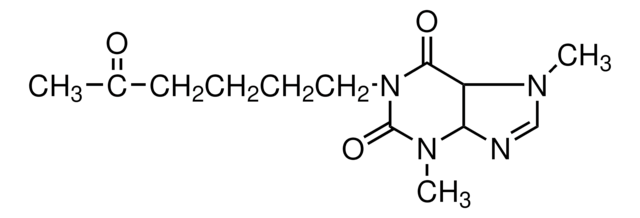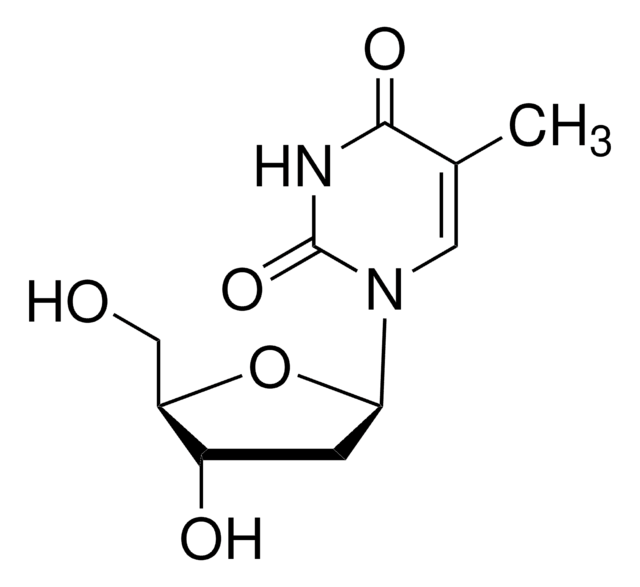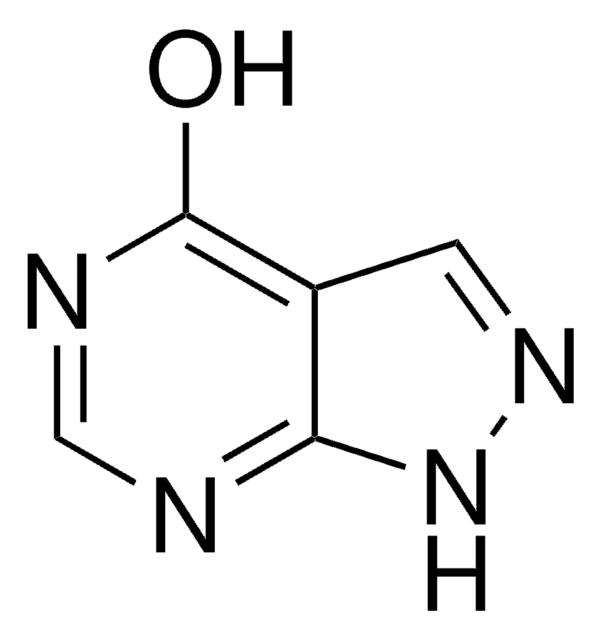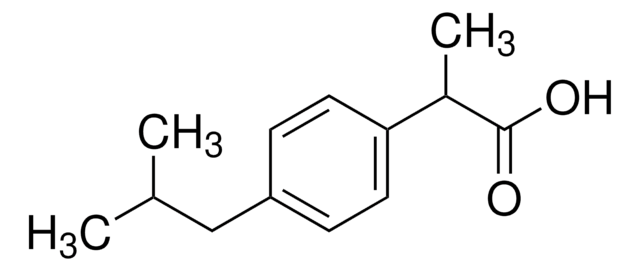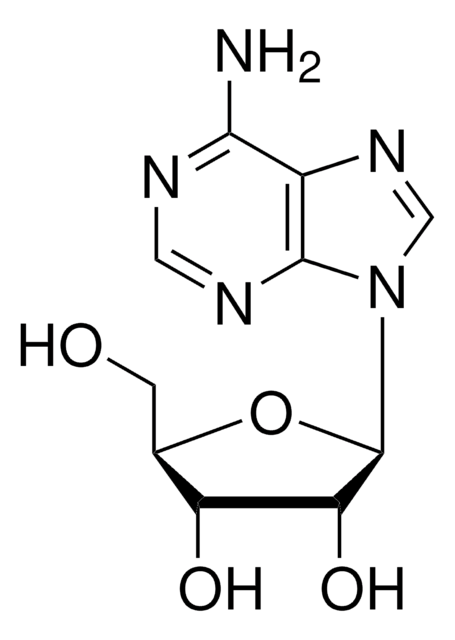P9689
Propentofylline
solid
Synonym(s):
3,7-Dihydro-3-methyl-1-(5-oxohexyl)-7-propyl-1H-purine-2,6-dione, 3-Methyl-1-(5-oxohexyl)-7-propylxanthine, HWA 285
About This Item
Recommended Products
form
solid
Quality Level
color
white
solubility
H2O: 12.4 mg/mL
storage temp.
−20°C
SMILES string
CCCn1cnc2N(C)C(=O)N(CCCCC(C)=O)C(=O)c12
InChI
1S/C15H22N4O3/c1-4-8-18-10-16-13-12(18)14(21)19(15(22)17(13)3)9-6-5-7-11(2)20/h10H,4-9H2,1-3H3
InChI key
RBQOQRRFDPXAGN-UHFFFAOYSA-N
Gene Information
human ... ADORA1(134) , PRKAR1A(5573) , PRKAR1AP(5574) , PRKAR1B(5575) , PRKAR2A(5576) , PRKAR2B(5577)
Looking for similar products? Visit Product Comparison Guide
Biochem/physiol Actions
Features and Benefits
Signal Word
Warning
Hazard Statements
Precautionary Statements
Hazard Classifications
Acute Tox. 4 Dermal - Acute Tox. 4 Inhalation - Acute Tox. 4 Oral
Storage Class Code
11 - Combustible Solids
WGK
WGK 3
Flash Point(F)
Not applicable
Flash Point(C)
Not applicable
Personal Protective Equipment
Choose from one of the most recent versions:
Already Own This Product?
Find documentation for the products that you have recently purchased in the Document Library.
Related Content
Cyclic nucleotides, including cyclic AMP (cAMP), cyclic GMP (cGMP) and cyclic ADP-ribose, have been extensively studied as second messengers of intracellular events initiated by activation of GPCRs. cAMP modifies cell function in all eukaryotic cells, principally through the activation of cAMP-dependent protein kinase (PKA), but also through cAMP-gated ion channels and guanine nucleotide exchange factors directly activated by cAMP.
Our team of scientists has experience in all areas of research including Life Science, Material Science, Chemical Synthesis, Chromatography, Analytical and many others.
Contact Technical Service